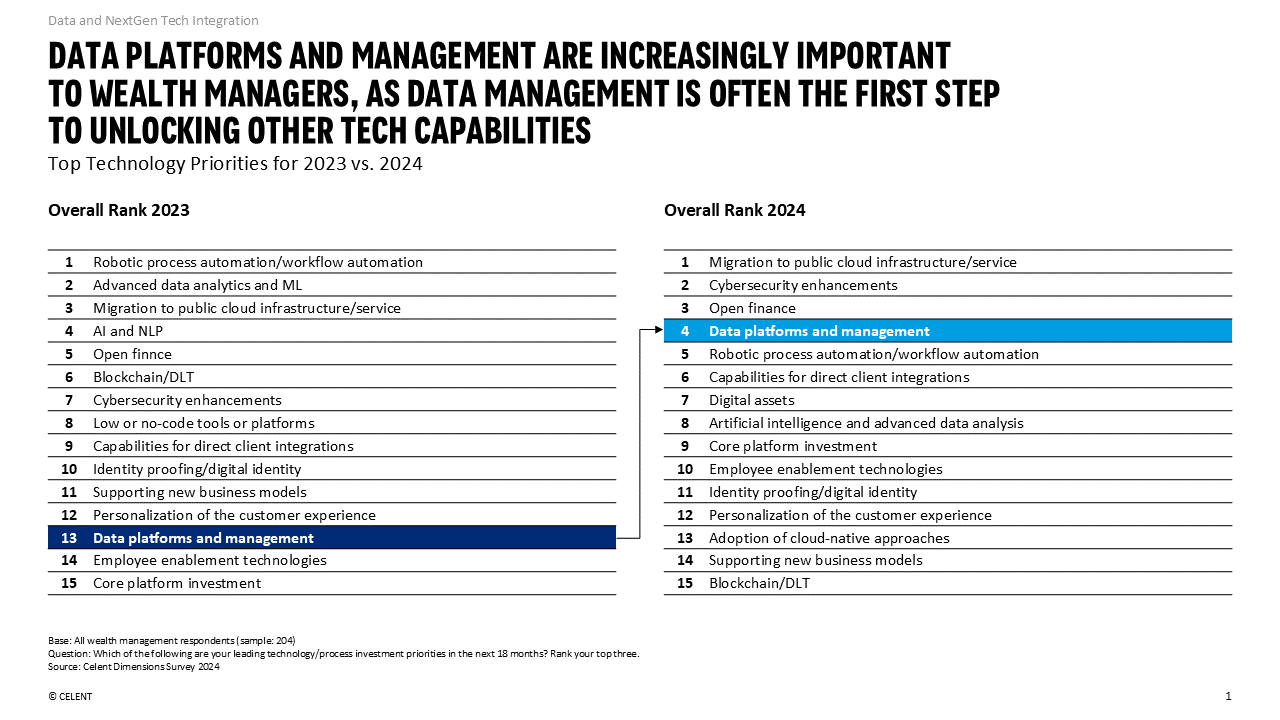Technology Priorities in 2024 Reflect a Holistic Approach that Intertwines Data Management, Cybersecurity, and AI Innovation
The technology priorities for wealth management in 2024 reflect a holistic approach that intertwines data management, cybersecurity, and AI innovation, positioning firms to thrive in an evolving digital landscape.
In 2023, the wealth management industry began to shift its technology priorities, placing a significant emphasis on data management and cybersecurity. This focus not only aimed to streamline data collection and analysis but also to ensure compliance with increasingly stringent regulations.

We saw the shift from 2023 to 2024, in the emphasis on firms acknowledging that effective data management is foundational for leveraging AI in wealth management. Wealth management firms are now prioritizing technologies that enhance data quality, accessibility, and security, recognizing that these elements are crucial for developing AI-driven solutions that can provide personalized insights, improve decision-making, and enhance client engagement which is increasingly the competitive differentiator.
Moreover, the growing data generation and subsequent data threat landscape has made cybersecurity a top priority, as firms must protect sensitive client information and maintain trust in their services. The integration of advanced cybersecurity measures is now seen as essential not only for safeguarding data but also for enabling the safe deployment of AI technologies.
But AI is just one of the many priorities that bank and wealth management executives will be focusing on in 2025.
Celent’s survey work in its 2024 Dimensions: Wealth Management IT Pressures & Priorities revealed that AI will be a significant focus for bank and wealth management executives in 2025, the overarching priority will be data.
Data management will remain a top priority for executives because of the recognition that high-quality, accessible data is the backbone of successful innovation and client engagement. In an era where data is often referred to as the "new oil or new gold," there’s an emphasis on data governance frameworks that ensure data integrity, security, and compliance. This will involve not only upgrading data infrastructure but also fostering a culture of data literacy across the organization, enabling teams to leverage data effectively in their decision-making processes.
However, at the core of these initiatives lies a fundamental priority: data.

